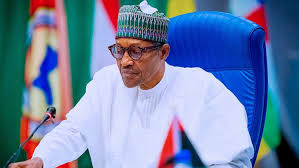THE greylisting of Nigeria, Africa’s largest economy, by the global anti-money laundering and terrorism financing watchdog, Financial Action Task Force (FATF), is expected to have a significant impact on the country’s economic growth.
The warning from the Paris-based FATF comes at a difficult time for Nigeria’s finances. What is more, the country is grappling with economic downturns caused by stagnant growth.
Grey listing, which comes before blacklisting, indicates that a country is being closely monitored by the FATF as it works with the taskforce to address relevant concerns such as money laundering and terrorism financing.
It also adds to the pressure on Nigeria to do more to address the underlying issues of organized crime, illicit finance, counterfeit trade, tax evasion, and financial crime.
For example, greylisting exposes Nigeria to increased scrutiny from investors and financial institutions around the world. As a result, its portfolio and general investment inflows are expected to decline significantly, making it difficult for the country to obtain lending or investment.
It also raises the risk category for all Nigerian clients at many international financial institutions, particularly those in the EU and UK.
The cost implications of the FATF’s move will be dire, given that Nigeria is unprepared for future economic shocks. It’s just the wrong time for Nigeria, which is currently experiencing an economic crisis due to cash shortages.
The collapse of the Naira triggered an economic crisis that continues to impede the west African country’s economic growth, with rising inflation and cost of living triggering mass exodus of its citizens. For decades, the Naira has been in a downward spiral.
Just last January, Nigeria’s central bank governor, Godwin Emefiele, reportedly self-exiled outside of Africa in order to avoid arrest by the country’s secret police on charges of terrorism financing and chronic corruption.
In 2019, Emefiele could not explain how Nigeria’s treasury lost more than $2.5 billion earmarked for arms procurement while he was governor, but he was reappointed by President Muhammdu Buhari.
Former central bank governor Sanusi Lamido Sanusi was also charged with financing terrorism in 2014. Armed bandit attacks in Nigeria claimed the lives of 2,600 people in 2021, a 250% increase from the previous year.
Nigeria is close to being blacklisted. According to the Center for Financial Surveillance and Illicit Transaction Tracking Group, Nigeria now risks being blacklisted by global financial institutions as a result of FATF’s latest action (CSITT).
It takes two to five years for countries on the greylist to address the issues and deficiencies that put them on the list and be removed from the list after FATF confirms the mandatory requirements.
Nigeria has now joined other African countries such as South Africa, South Sudan, the Democratic Republic of the Congo, Mozambique, Uganda, Tanzania, Mali, Senegal, and Burkina Faso as a result of the anti-money laundering watchdog’s decision.
The UN estimates that Africa has lost over $1 trillion in illicit financial flows over the last five decades.


